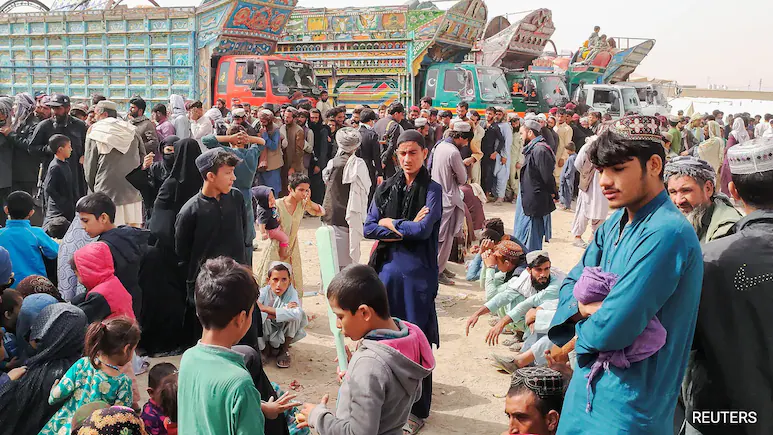In a significant humanitarian and geopolitical development, more than 2 lakh Afghan nationals have left Pakistan following the country’s renewed deportation campaign targeting undocumented foreigners. The large-scale exodus, reignited in early 2024, has triggered international concern over the treatment of migrants and the deteriorating situation in Taliban-controlled Afghanistan.
Pakistan began a strict deportation drive in October 2023, citing national security concerns and the growing burden on its economy and infrastructure. Authorities initially issued a deadline of November 1, 2023, for all undocumented immigrants, including Afghan nationals, to leave voluntarily or face forcible expulsion. As of mid-2025, this campaign has intensified, leading to the departure of over 200,000 Afghans, according to the Ministry of Interior.
The Pakistani government claims the crackdown is necessary to curb terrorism and crime, citing several recent attacks allegedly linked to Afghan nationals residing illegally. However, human rights organizations have raised alarms over arbitrary arrests, detention of women and children, and reports of mistreatment at border crossings.
Afghanistan’s Taliban administration, while publicly condemning the deportations, has shown limited capacity to absorb the returning population. The country, already grappling with economic collapse, widespread unemployment, and sanctions, is facing renewed pressure as returnees add to the strain on limited resources and social services.
According to UNHCR, over 1.3 million Afghan refugees are registered in Pakistan, but an estimated 600,000 more reside without legal status. Many of those affected by the deportation orders include second- and third-generation Afghans born in Pakistan, who now find themselves with no formal ties to Afghanistan. Families have reported being separated, with children forced to abandon schools and livelihoods lost overnight.
The Torkham and Chaman border crossings in Khyber Pakhtunkhwa and Balochistan provinces have seen a massive influx of returnees. Local media reports indicate makeshift camps have been established on the Afghan side of the border, where basic necessities like food, shelter, and medical aid remain in short supply.
International organizations, including Amnesty International and Human Rights Watch, have urged Islamabad to halt the deportations, calling for a more humane and rights-based approach. Meanwhile, Pakistan insists the policy is a sovereign matter and necessary to maintain national stability.
Conclusion:
The forced return of over 2 lakh Afghan nationals from Pakistan has highlighted the complex interplay of national security, refugee rights, and regional instability. As the humanitarian crisis deepens on both sides of the border, international pressure is mounting on Pakistan to reconsider its policies. At the same time, global actors are being urged to increase aid and diplomatic engagement to prevent further deterioration in Afghanistan’s fragile socio-political fabric.



